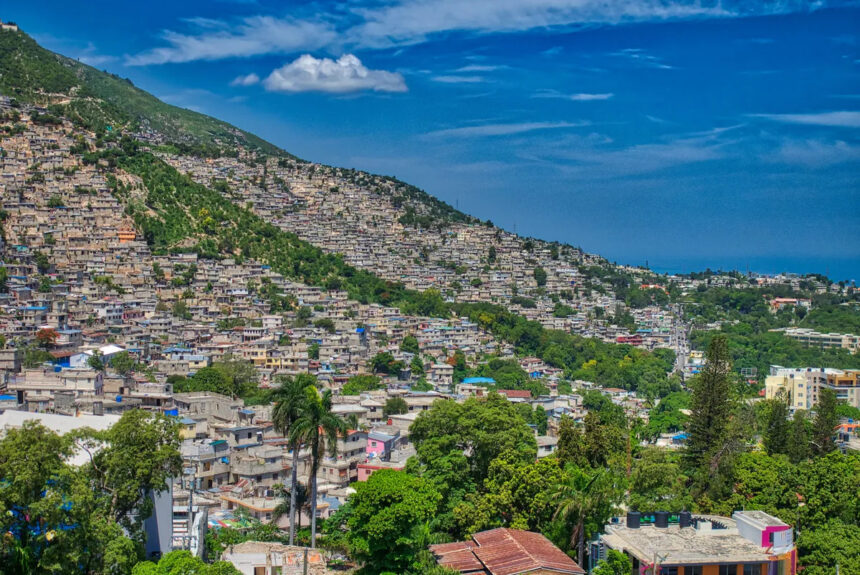Haiti, often seen through the lens of its difficulties, aspires to achieve stability and prosperity in the 21st century. Despite its past challenges, a new generation believes in a renaissance project to use Haiti to improve the world. Founded on values of freedom and democracy, the first Black republic in the world in 1804 proved that freedom is universal. As a candidate for Haiti’s presidency, I believe that we should use our past to build a stable, prosperous, and dignified country. Solutions rooted in economic freedom will help us get there.
>>>READ: Could the Cook Islands Hold the Key to Our Critical Mineral Future?
Haiti’s renaissance is being driven by neo-progressives and is based on the values of freedom and democracy. Under my administration, we plan to help more than 13 million people emerge from poverty to experience the benefits of sustainable development and economic mobility. This project restores value to life and the sacred right to happiness, with the ultimate goal of celebrating 250 years of independence of the Republic in 2054 with dignity and prosperity.
Accomplishing these goals will be no small feat, but relying on a sustainable future two fundamental pillars of economic freedom and democracy will get us there. These elements are essential for entering an era of renaissance, creating a resilient economy, ensuring political stability, fostering social and technological innovations, and preserving the environment for future generations.
Economic freedom is the cornerstone of prosperity. For Haiti, this means promoting sustained, shared, and sustainable economic growth, full productive employment, and decent work for all. It involves removing barriers to entrepreneurship, innovation, and investments, and addressing historical socio-economic injustices. Corruption, administrative burdens, insufficient infrastructure, political instability, and gang violence have long hindered Haiti’s economy. By implementing reforms that promote transparency, reduce bureaucratic obstacles, and protect property rights, Haiti can unleash its entrepreneurial potential. Small businesses, the backbone of the economy, can thrive, creating jobs and strengthening economic resilience.
Furthermore, economic freedom facilitates access to capital. Open and competitive financial markets allow entrepreneurs to obtain the necessary funds to innovate and grow, particularly in agriculture, which employs a large part of the population. Modernizing agricultural practices through access to capital and technology can increase productivity, enhance food security, and reduce environmental degradation.
To rise from its ashes, Haiti must quickly address the challenges of energy insecurity, inadequate basic infrastructure, and poor institutions. Haiti presents itself as the land of all opportunities, but this requires a stable democratic government.
Economic freedom cannot thrive without a stable and transparent political system. Democracy, with its principles of accountability, rule of law, and broad public participation, is foundational. For Haiti, restoring democracy by making it more representative, participatory, and local is crucial to ensuring that economic gains are widely shared and sustainable. Robust democracy reduces corruption and mismanagement, fosters trust, and encourages investments. Transparent governance ensures that policies serve the general interest, and citizen participation makes development initiatives more inclusive.
The progress made possible by economic freedom and democracy will not only benefit the economy but our environment as well. Economic growth, supported by free market principles, can provide the necessary resources for environmental conservation.
Haiti’s environment has suffered from deforestation, soil erosion, and pollution, exacerbating poverty and hindering economic development. Promoting sustainable agricultural practices, investing in renewable energy, and enforcing environmental regulations can protect natural resources while fostering economic growth.
>>>READ: Economic and Environmental Lessons from Trinidad and Tobago
The international community also has a role to play in supporting Haiti’s path to economic freedom and democracy. New partnerships and international policies must be established to catalyze positive changes. Aid should focus on strengthening institutional capacities, improving infrastructure, and supporting initiatives that promote transparency and accountability. Fair trade agreements can also stimulate economic growth, allowing Haitian products to compete on the global stage, creating jobs, and boosting development.
Haiti’s future is not predetermined, and its crisis is neither final nor fatal. By embracing economic freedom and strengthening democratic institutions, the nation can chart a path toward a sustainable and prosperous future, improving the lives of more than 13 million people. These principles are not abstract ideals but practical tools to address the country’s most pressing challenges. Through the collective efforts of its citizens and the rethought support of the international community, Haiti can transform its economy, protect its environment, and ensure a better future for all.
Alexandre Telfort Fils is running for president of Haiti
The views and opinions expressed are those of the author’s and do not necessarily reflect the official policy or position of C3.
